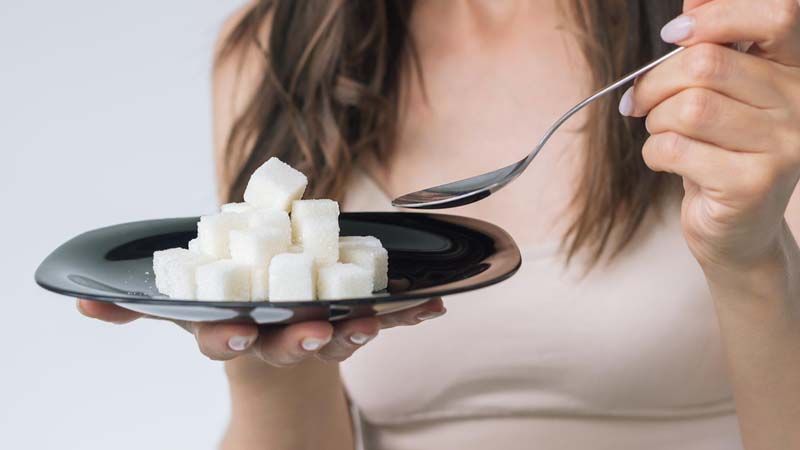How Much Water Are You Actually Supposed To Drink Each Day?
- 19 months ago
One must drink 8 glasses of water each day i.e 2 liters. Now, you must have heard this statement quite a lot. However, there's no scientific research backing this statement. So, what's the right amount of water you're supposed to drink to prevent dehydration and allow your body's smooth functioning?
Well, if you have the above question in mind, this blog is for you. Here we'll discuss the benefits of drinking water, the amount of water required by your body, and the ways of getting ample water from your diet. So, read in full.
Health Benefits Of Drinking Water
Here are the benefits of drinking water apart from keeping you hydrated:
1. Balances Body Temperature
Ample amounts of fluids, including water, can help regulate your body temperature. Whenever you're exposed to too much heat, it's the water in your body that helps keep your body cool by sweating, etc.
2. Improves Athletic Performance
Low water consumption can lead to dehydration which can impact an athlete's performance. However, research says that you can expect a boost in energy and endurance by being fully hydrated.
3. Improves Mood And Concentration
Several studies show that there's a link between water intake and concentration & mood. For instance, a study says that drinking the required amount of water can make you feel calm and boost your cognition.
4. Helps With Weight Loss
When you drink water before meals, you'll feel full. This means you won't be able to eat extra food/calories, which further means weight loss.
With that said, let's find out how much water you should consume daily.
How Much Water Should You Consume/Drink Every Day?
Many people say that drinking 8 eight-ounce glasses of water each day (64 ounces* which is 1.9 liters) is necessary. However, this is not true as there's no research behind it, as stated earlier.
*A standard glass contains eight ounces. So, 8 x 8 = 64 ounces
Some experts even say that you should divide your body weight (in pounds) by 2, and that is the number of ounces of water you should drink each day. So, if you weigh 160 lbs (72 kgs)., you should drink 80 ounces of water each day which is about 2.3 liters.
For more clarity: Water (in l) to drink a day = Your Weight (in Kg) X 0.033. For instance, if you are 60kg, you must have about 2 liters of water every day. (However, don't consider this formula alone as other factors are also important)
Please Note: When it comes to consuming water, humans never rely only on drinking direct H20 from the bottle. Almost every beverage like juices, tea, milk, or even coffee, along with foods such as leafy vegetables, watermelons, etc., contains some amount of water.
So, it's better to say how much fluids you must intake rather than saying how much water you should drink.
Recommended Water Intake For Men And Women
Also, the National Academies of Sciences recommend 2.7 l or 91 ounces for women and 3.7 liters or 125 ounces for men. And this water should come not only from the direct H20 that you drink but also from the foods & beverages that you consume each day.
Furthermore, most people get 20% of the required fluids from the foods and 80% from beverages. Let's learn how to consume about 100 ounces or fluid ounces from your diet below.
How to Get the Required Water From Your Daily Diet
Here's how:
In The Morning:
Go for 2-8-ounce glasses of water (59.1471 ml to 236 ml approx.)along with 2-8-ounce cups of coffee (typically 236.588ml). This will offer you 32 fluid ounces (946 ml approx.). You can add some water-rich foods such as blackberries and yogurt, both of which contain almost 88% water.
In The Afternoon:
Drink 2–8-ounce glasses of water (59.1471 ml to 236 ml approx.) along with 2 8-ounce cups of tea that add up to 32 ounces of fluid. Also, add some water-rich foods such as lettuce, cucumbers, soups, all of which are 95% water.
In The Evening:
After/Before dinner, consume 2-8-ounce glasses of water (59.1471 ml to 236 ml approx.) along with some vegetables or a glass of milk. This should be enough to take you to 2.95735 liters or 100 fluid ounces for the day.
Please note that the above information can be tweaked at your convenience. And you can always add or subtract food items or beverages as you please.
Who Needs More Water?
The water you need per day varies with where you live, physical activity, general health, what you consume, and what you do. For example, if you consume alcoholic beverages, sugar, or salt, you'll need more water than normal daily.
Also, if you live where the climate is hot and dry, you'll need more fluids than the person who's living in a place with a wet or cool climate.
Takeaway
Talking generally, there isn't any formula or the exact amount of water that you should consume. After all, it depends on several factors, as stated above. However, if you consider the research, 2.7 l of water per day for women is good and 3.7 l for men.









